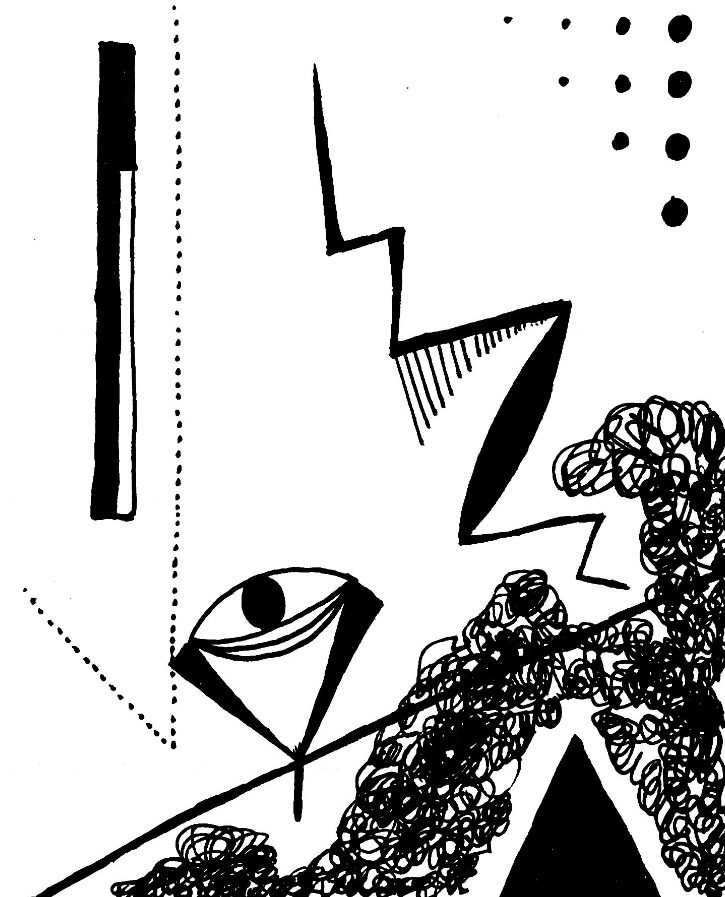
Linxi Cindy Zeng, Contributing Illustrator
Any Yale dining hall at 6 pm demonstrates how drastically different the realities faced by people in the same room at the same time doing the same thing can be. It seems that the only shared reality are those white plates lined in the color #00356b, holding yet different foods. Such a realization can be enlightening, or daunting.
Cathy Park Hong defines “minor feelings” in her book Minor Feelings: An Asian American Reckoning as “the racialized range of emotions that are negative, dysphoric and therefore untelegenic.” But we cannot always tell whether what we are feeling is racial, or even answer the question, “Is it just me?”
So I talked to some Yalies, all of whom are Asian-identifying to various degrees, about any minute feeling relative to their cultural identities in the US. I sought to understand, not to accuse. And their answers were so different that the difficulty of writing something cohesive escalated as conversations proceeded.
“Maybe this is evidence for why they should stop stereotyping us,” Sianna Xiao ’25 said. “Even our minor feelings are different, why must we all be good at math?”
Asians are not always assumed to possess unassumed individuality. Elaine Cheng ’25 thinks the frustration with being stereotyped is that either way, you lose. If you’re good at math, you’re “just Asian.” If you’re not, “Are you even Asian?” The casual derision goes both ways.
Some interviewees also experienced micro-aggression. Clarissa Tan ’26 grew up in Lincoln, Nebraska, a predominantly white community. Children from her elementary school sometimes pulled their eyes at her. But Clarissa found it hard to blame them for their ignorance and felt it was her responsibility to explain that pulling your eyes at an Asian is offensive. She became more aware of her identity after coming to Yale.
The other side of the coin is an ongoing hyper-awareness of identity. Though not a Nisei (second-generation Japanese in the Americas) herself, Katherine Matsukawa ’23 resonates with a quote from Paul Spickard’s book Japanese Americans saying that Nisei have a “tendency to constrain their behavior in order to minimize the risk of criticism.” She saw this carefulness in her father and now in herself. When Kelly Yan ’26 first arrived in the US, every night she would reflect upon the “stupid things” she said during the day, e.g., saying “toilet” instead of “bathroom” or saying “I’m hot” when the temperature was too hot.
“It’s not just about the language. There was something cultural about that awkwardness. I still remember those moments after all these years,” Yan said.
Ruiyan Huang ’25, a Chinese student from Suzhou, finds it easier to make friends with other students from less prominent cultures. For many of Howard Shi ’25’s friends, Yale has been the first place where they could find an Asian community, which they have come to cherish. Many interviewees pointed out their main friend group consists primarily of Asian-identifying people and that this is more a result of natural attraction than conscious selection. Interactions based on shared cultural premises demand less effort in establishing a common ground and avoiding possible offense.
“Sometimes I just want to go home, where I can forget about my Asian-ness and just be me,” an anonymous Chinese interviewee said.
But then she quickly clarified it would be wrong to conclude people are more comfortable in less diverse communities. Yale is a huge place, yet in the end, we can only grow very close to a small subgroup of people. The forest is all yours to explore, and the campfire offers solace when you return. It is suffocating to be on either extreme. Perhaps diversity is more about the flexibility of choice than a tumultuous everything-everywhere-all-at-once.
“There are so many things Yale is doing well to promote diversity. But sometimes, I still get this minor feeling that Yale is a predominantly white institution and that this place was not built for me. There is a historical disconnect between the figures Yale has produced and who I, and many of my friends, want to become,” Anouk Yeh ’26 said.
For Sianna, being “Chinese American” is one of her favorite things about herself. Her pride in this identity peaked with the intensity of Asian hate in American society during COVID. In the depth of absurd belittlement, she knew she was so much more.
And it is not just her.







